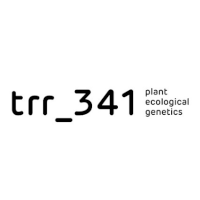Citizen science project in Ecological Genetics
The citizen science (CS) project is called PUKI (Pflanze-Umwelt-Klima-Interaktion), which is an abbreviation standing for the interaction between plants, environment and climate. It is a public outreach project that aims to engage students, non-governmental organizations, institutions of the educational sector, students, school children and the interested public to develop and carry out research activities aligned to the goals of the CRC TRR 341 (TRansRegional Collaborative Research Center 341).
PUKI serves the goals of the CRC TRR 341:
- It raises awareness of the importance of plants for ecosystems, of the various challenges and threats plants are exposed to, and of the role that genetics plays in plant adaptation to rapid environmental change.
- It engages citizens in contributing to trans-regional plant monitoring at a large scale by collecting data, which serve to answer the major research questions of the TRR 341.
- It trains young researchers in science communication and in the development of participatory research formats, thus increasing their professional competencies and networks.
Finally, PUKI provides opportunities to the public for engaging in scientific discourse, including discussions on the contentious topic of plant genetics and genetic change.
PUKI aims to create a highly collaborative and vibrant community of interconnected scientists and citizen scientists, thereby increasing expertise and enthusiasm as well as scientific exchange.
In the long term, both early career researchers and Principal Investigators (PIs) of the TRR 341 as well as participating citizen groups are expected to develop novel innovative and collegial research initiatives.
Project leader
Prof. Petra Bauer
Institute of Botany, HHU
Scientific coordinator
Bruno Walther (DPhil, Ass. Prof.)
Institut für Botanik
Heinrich Heine Universität
Universitätsstr. 1
40225 Düsseldorf
Building 26.14, Room 01.071
Scientific aims of the CS project PUKI
Information on traits, phenotypes and habitats of selected model plant species of the Brassicaceae and Hordeum clades are collected via the Flora incognita mobile app by interested citizens (Mäder et al. 2021). Target groups of students and the educational sector are encouraged to conduct plant genotyping to report on the occurrence of genetic variants. Plant phenotyping and genotyping data collected by citizen scientists are assembled in a common database and analyzed. The PUKI approach is evaluated with respect to participant structure and motivation.
Outline and roadmap of the CS project PUKI
The project PUKI is headed by a democratic CS-team, aided by the CS scientific coordinator and in close contact with the CRC TRR 341 researchers. PUKI has five implementation goals (engagement, preparation, research data collection, data analysis and dissemination). Citizens of the three target groups can participate in a contributory, collaborative and/or co-creative manner.
We look for Citizen Scientists
Read here for more information.
